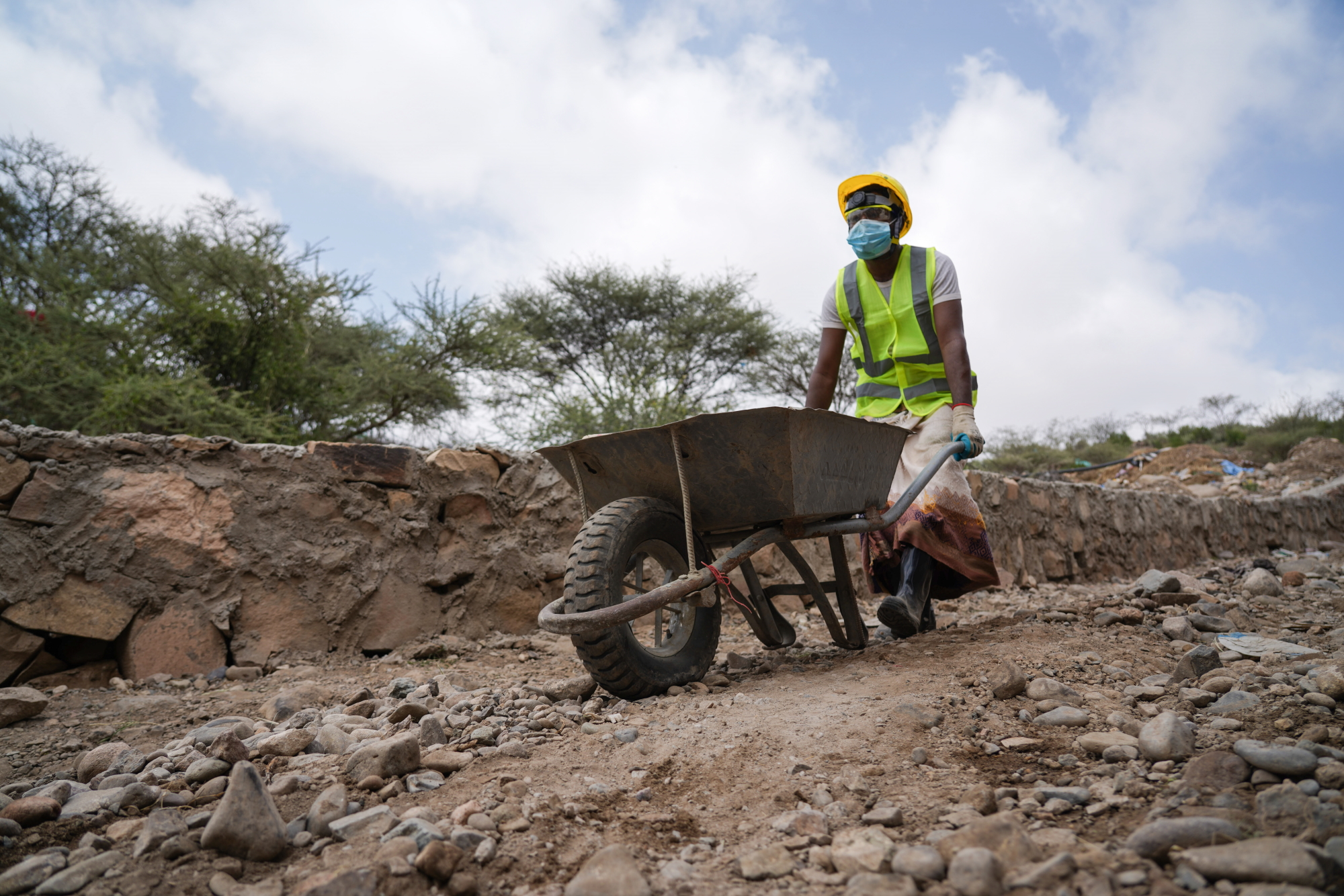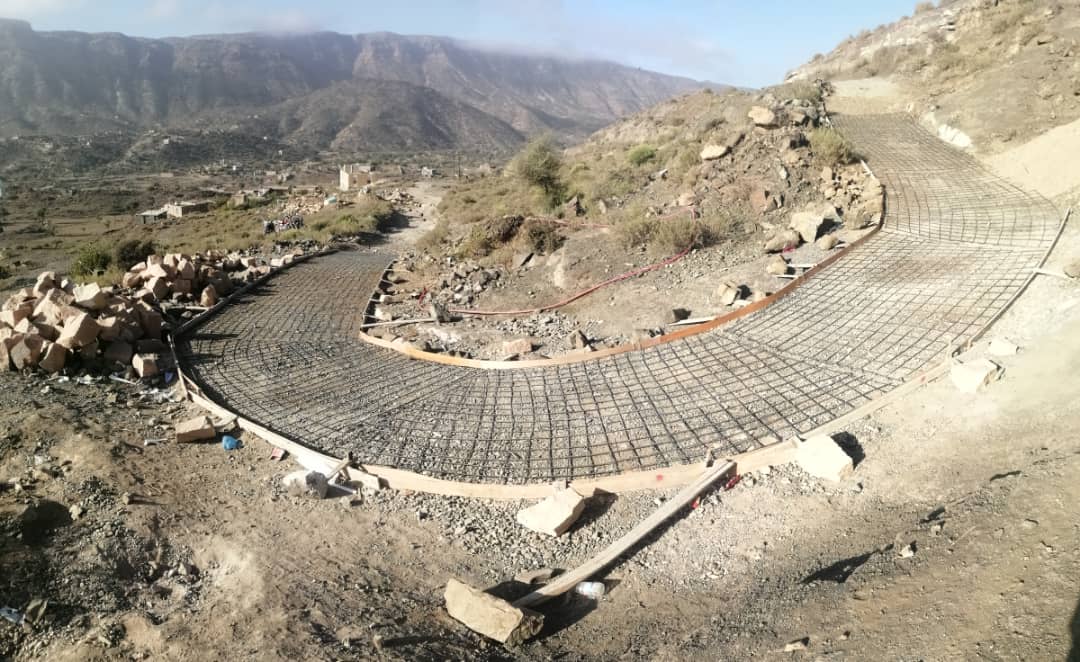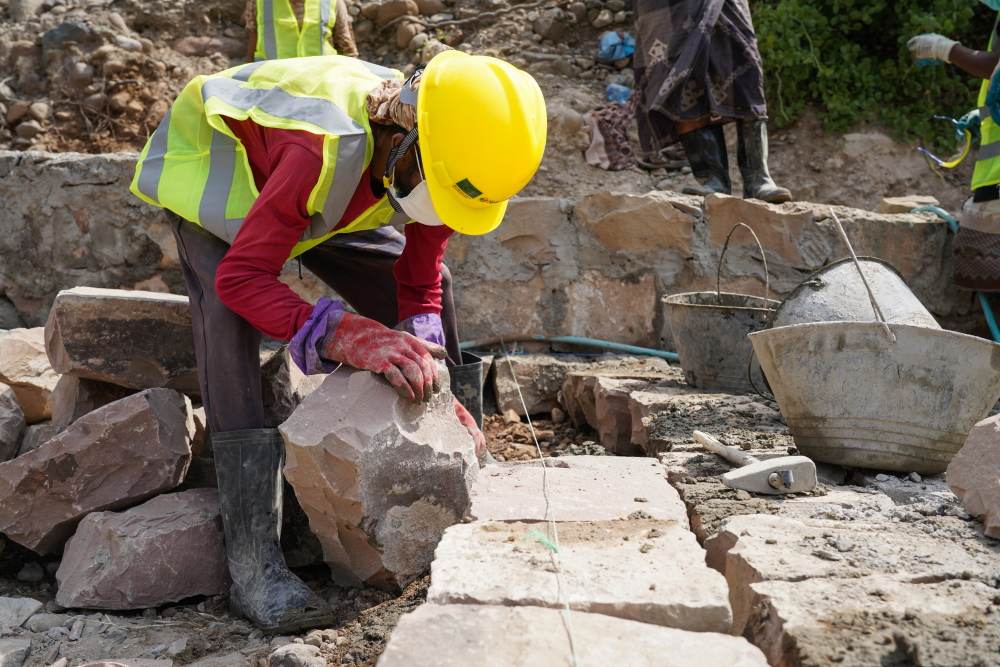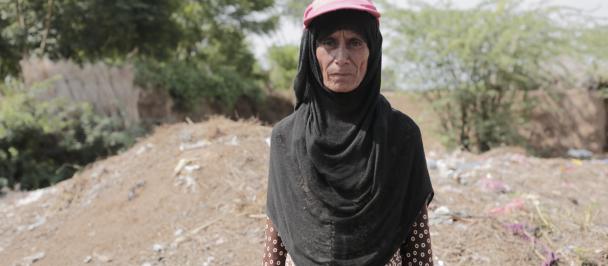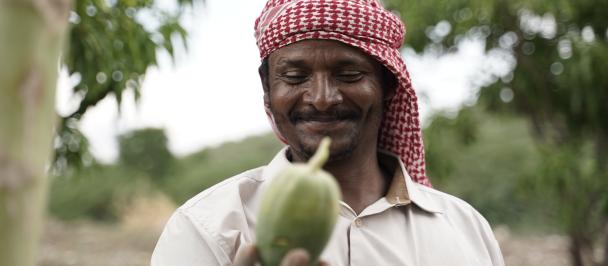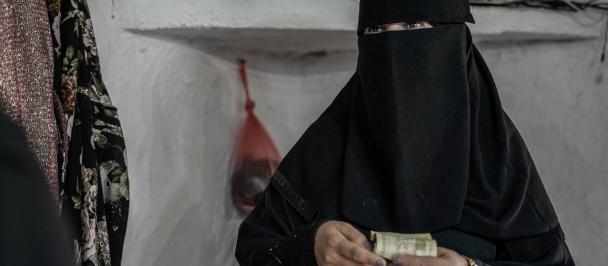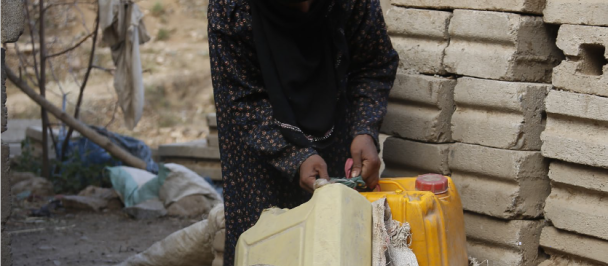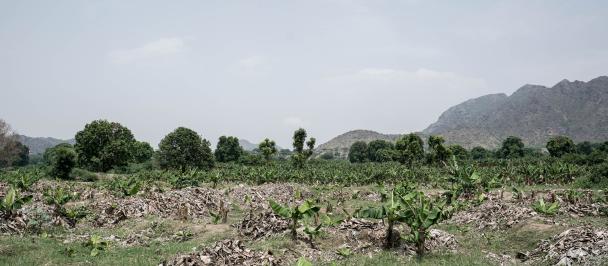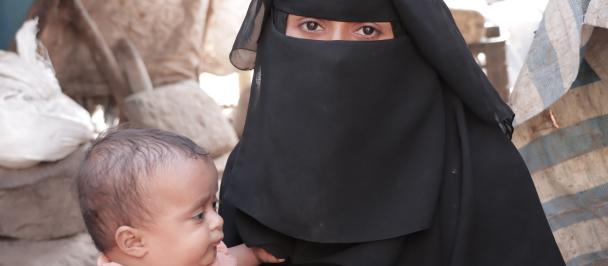A community member helps pave Elyafa Road | Photo credit: UNDP Yemen/2020
A war-torn country, Yemen’s infrastructure has been severely damaged, causing tension over access to basic services and depriving many of the right to a decent life.
The residents of Ash Shim'yatayn district in Taiz must travel over difficult mountainous terrain to visit neighboring areas where they can access markets, healthcare, and education facilities.
“We have suffered tremendously because of the ruggedness of Elyafa road. Sadly, women have been affected the most,” explains 41-year-old Elham, a local resident of Al-Madahej sub-district.
One of Abdullah’s sons had to carry his mother on a stretcher in a race against time to save her life. Young villagers rushed to help, but it was neither safe nor comfortable to carry Ward to the hospital. They suffered as they carried her down Elyafa Road, the closest road to the hospital, as it was very rugged and rocky.
The early stages of paving Elyafa Road, Taiz | Photo credit: UNDP Yemen/2020
One Saturday in late December 2019, Ward – a mother of 10 – suffered a sudden heart attack. Her condition was critical and she required immediate aid, but the nearest health facility was 25 kilometers away. Without the more than YER 50,000 (approximately US$86) to pay, her husband Abdullah could not arrange her transportation. They are a poor family without regular income.
As fear and panic over Ward’s condition settled in, the family knew they had to find an alternative.
One of Abdullah’s sons had to carry his mother on a stretcher in a race against time to save her life. Young villagers rushed to help, but it was neither safe nor comfortable to carry Ward to the hospital. They suffered as they carried her down Elyafa Road, the closest road to the hospital, as it was very rugged and rocky.
Tragically, Ward lost her struggle while being carried to the hospital. “If the road would have been paved, we could have reached the hospital faster and saved my wife’s life,” exclaims Abdullah.
Acknowledging the urgent need for critical access for the community, Elyafa Road is now being paved. Thanks to the support from the European Union and the Swedish International Development Cooperation Agency (SIDA), and local partnership with the Social Fund for Development, this will help ensure no family has to suffer like Ward again.
A community member helps pave Elyafa Road | Photo credit: UNDP Yemen/2020
Since 2019, the Supporting Resilient Livelihoods and Food Security in Yemen Joint Programme (ERRY II JP), has implemented multiple interventions that support critical initiatives identified by the Village Cooperative Councils (VCCs). In the Al-Madahej area, 11 members of the related sub-district committee (8 men and 3 women) identified the Elyafa Road rehabilitation as a priority for the residents. "The intervention is a result of participatory planning; they are of high importance as they express the needs of the target communities,” says Mohammed Heba, the Local Governance Specialist for UNDP Yemen. The project was allocated US$20,000 to implement and residents were employed to help build the 500-meter-long and four-meters-wide road.
"Paving Elyafa Road is a top priority for us; it is a vital artery that connects villages with the center of the district, serving around 23,000 people and assisting their movement to neighboring areas," explains Saeed Qassem, a school principal from Al-Madahej sub-district. "Work is underway and more support is needed to complete the rehabilitation work of Elyafa Road,” he added.
***
The Social Fund for Development – with support from the United Nations Development Programme (UNDP) – has established and re-activated 72 VCCs and 12 sub-district committees (SDCs) in the Ash Shim'yatayn District where the Elyafa Road is located. So far, nine initiatives have been supported that have resulted in 2,400 meters of paved roads.
Together, UNDP and its local partners support many community initiatives that make use of the available resources in order to restore and improve the delivery of basic services to the beneficiary communities. These activities were implemented as a part of the Supporting Resilient Livelihoods and Food Security in Yemen Joint Programme (ERRYJP II) in partnership with the Social Fund for Development (SFD) and generous funding and support from the European Union and the Swedish International Development Agency.

 Locations
Locations